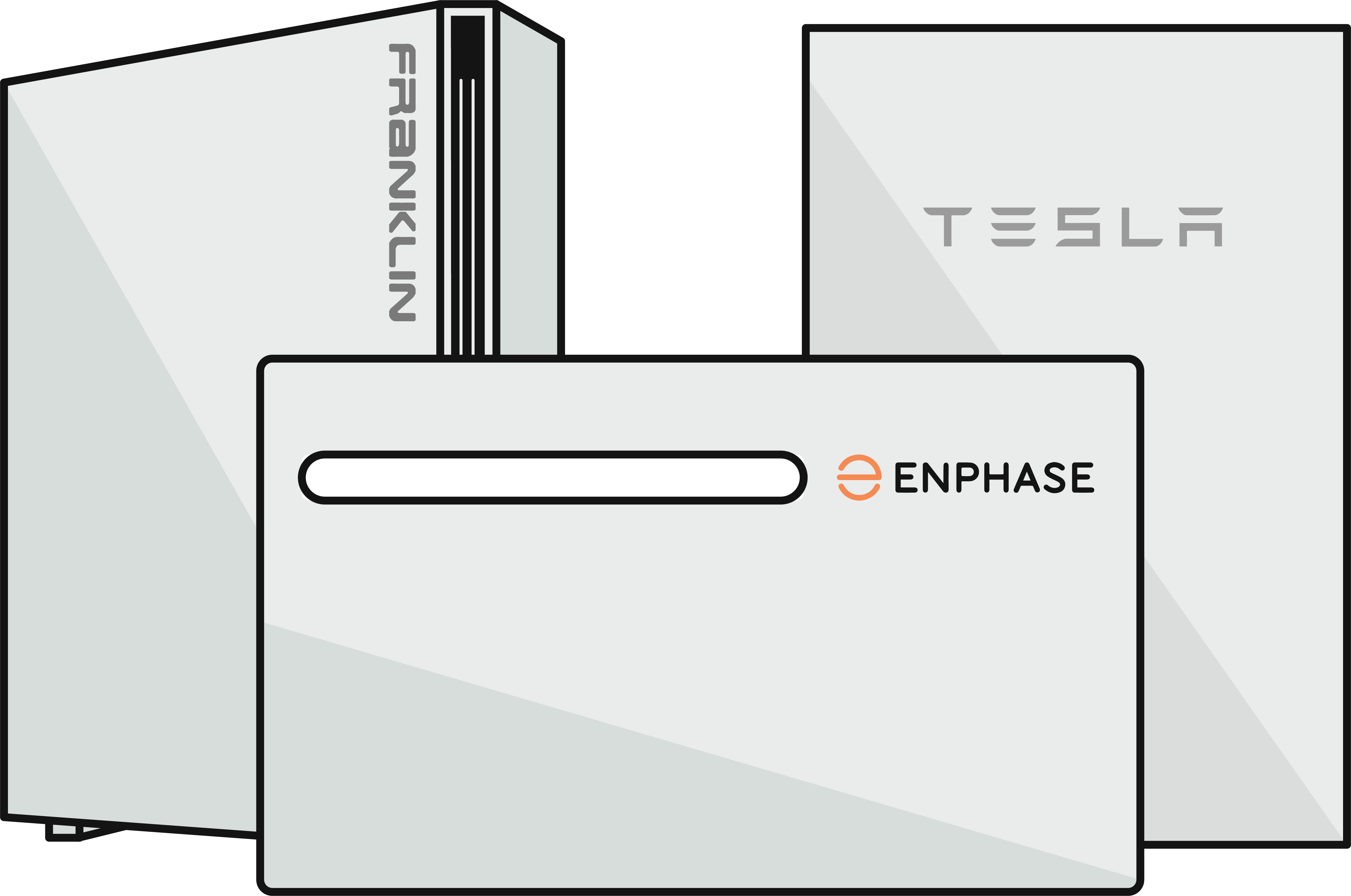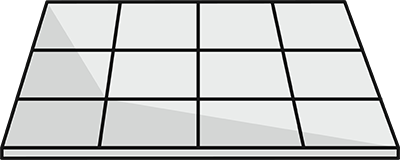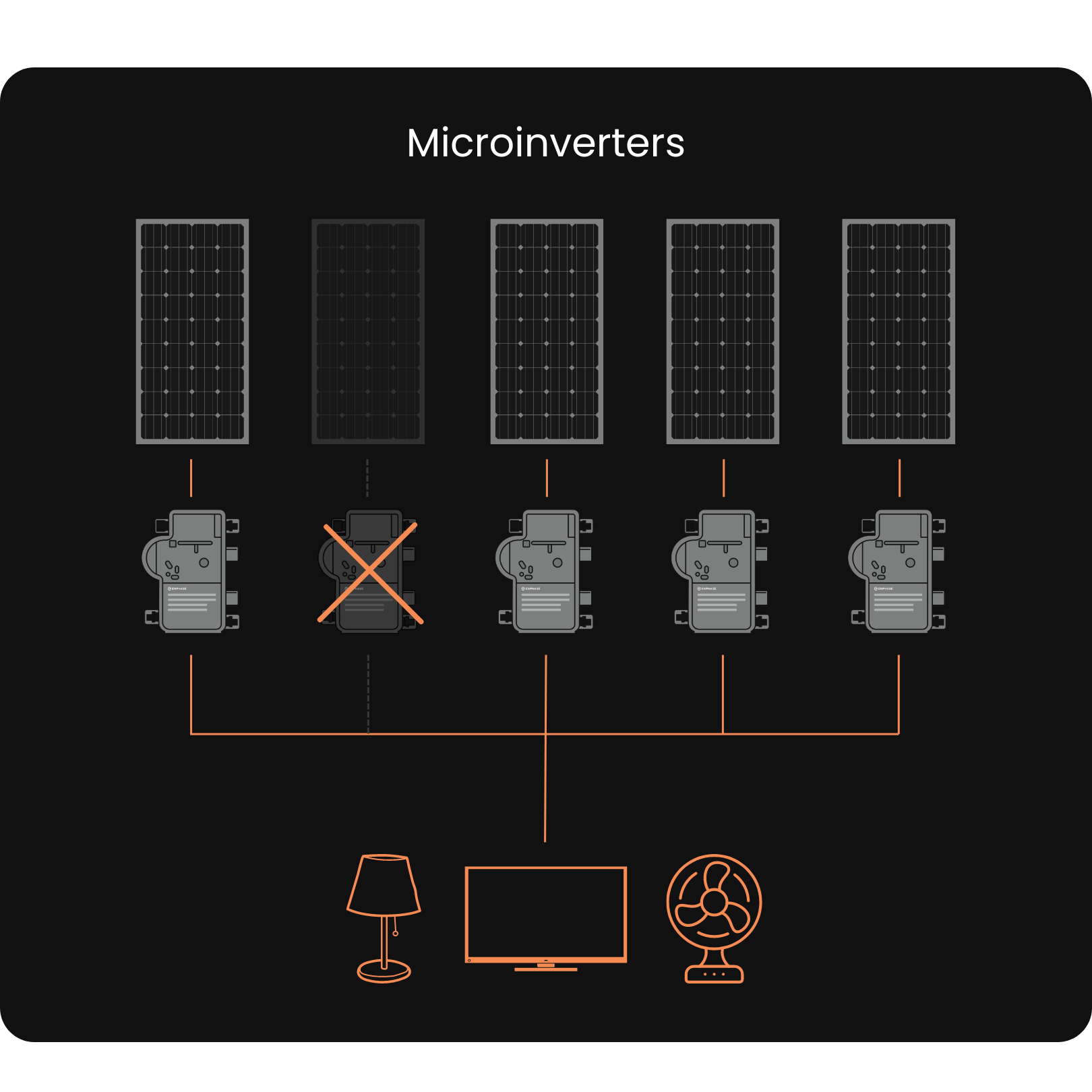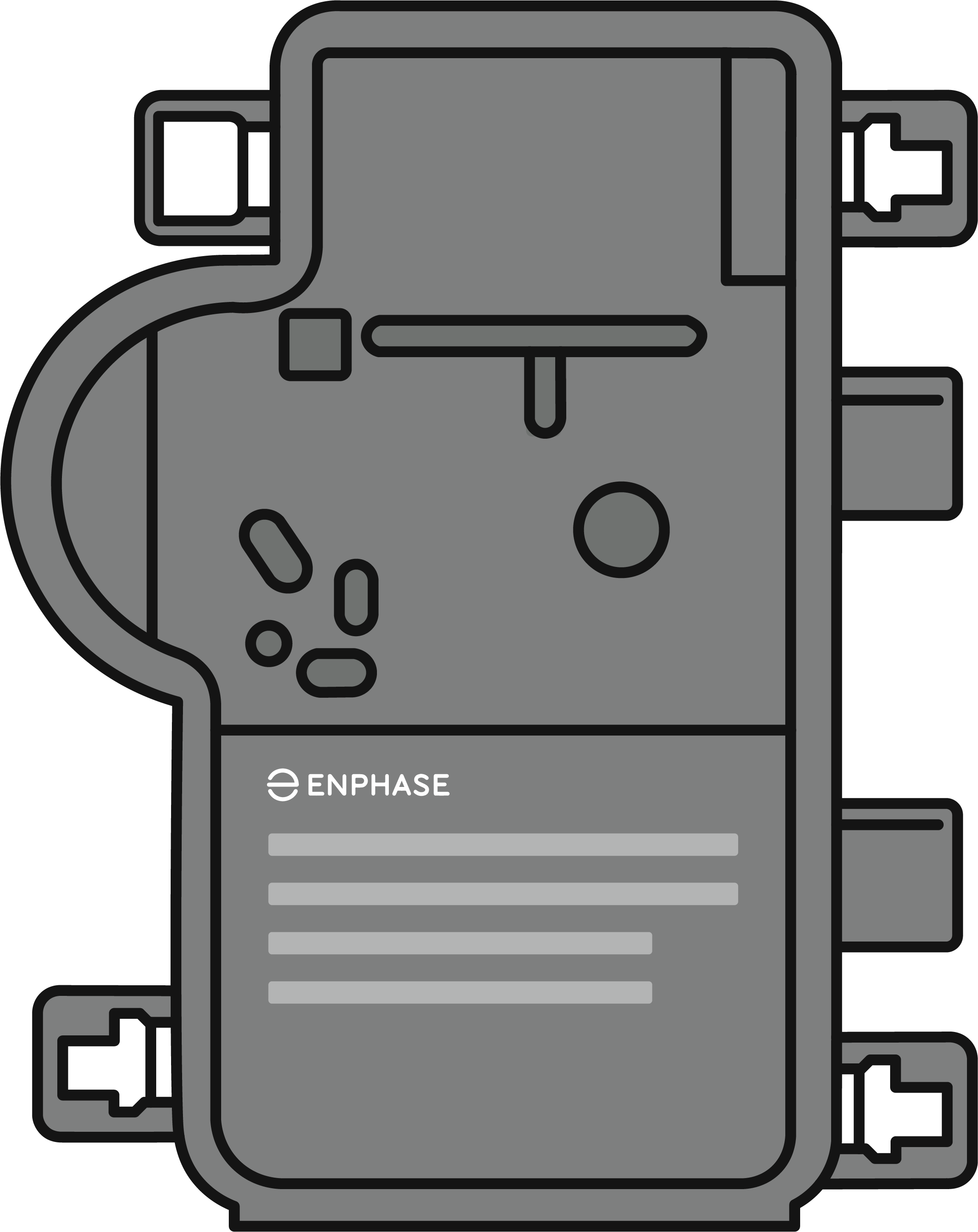
What is an Inverter?
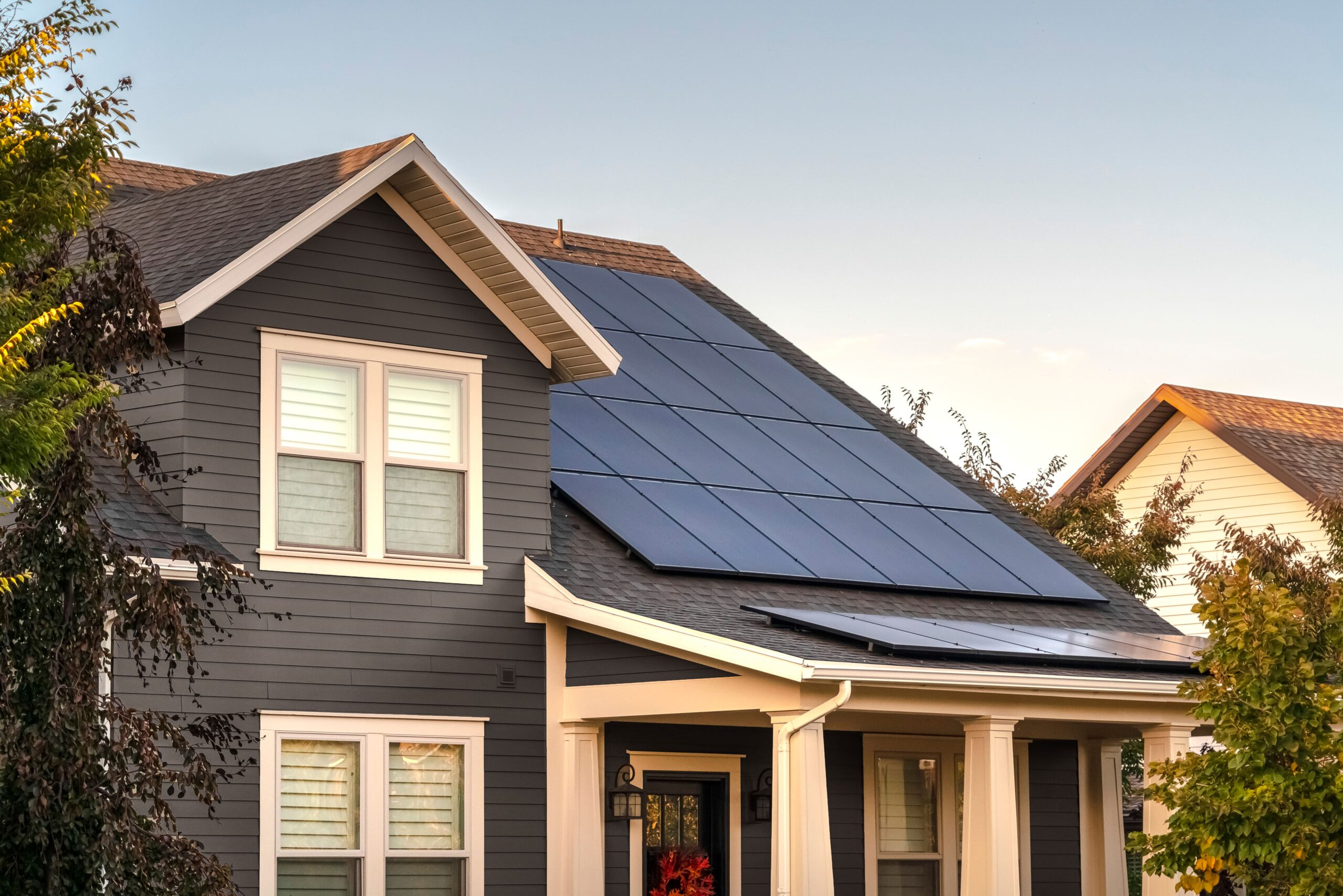
An inverter is an essential component of solar energy production that converts electricity from unusable direct current (DC) energy to usable active current (AC) energy for your household appliances and the electrical grid. Additionally, inverters facilitate data monitoring, grid interaction, and optimization of power point tracking, enhancing overall system efficiency and performance.
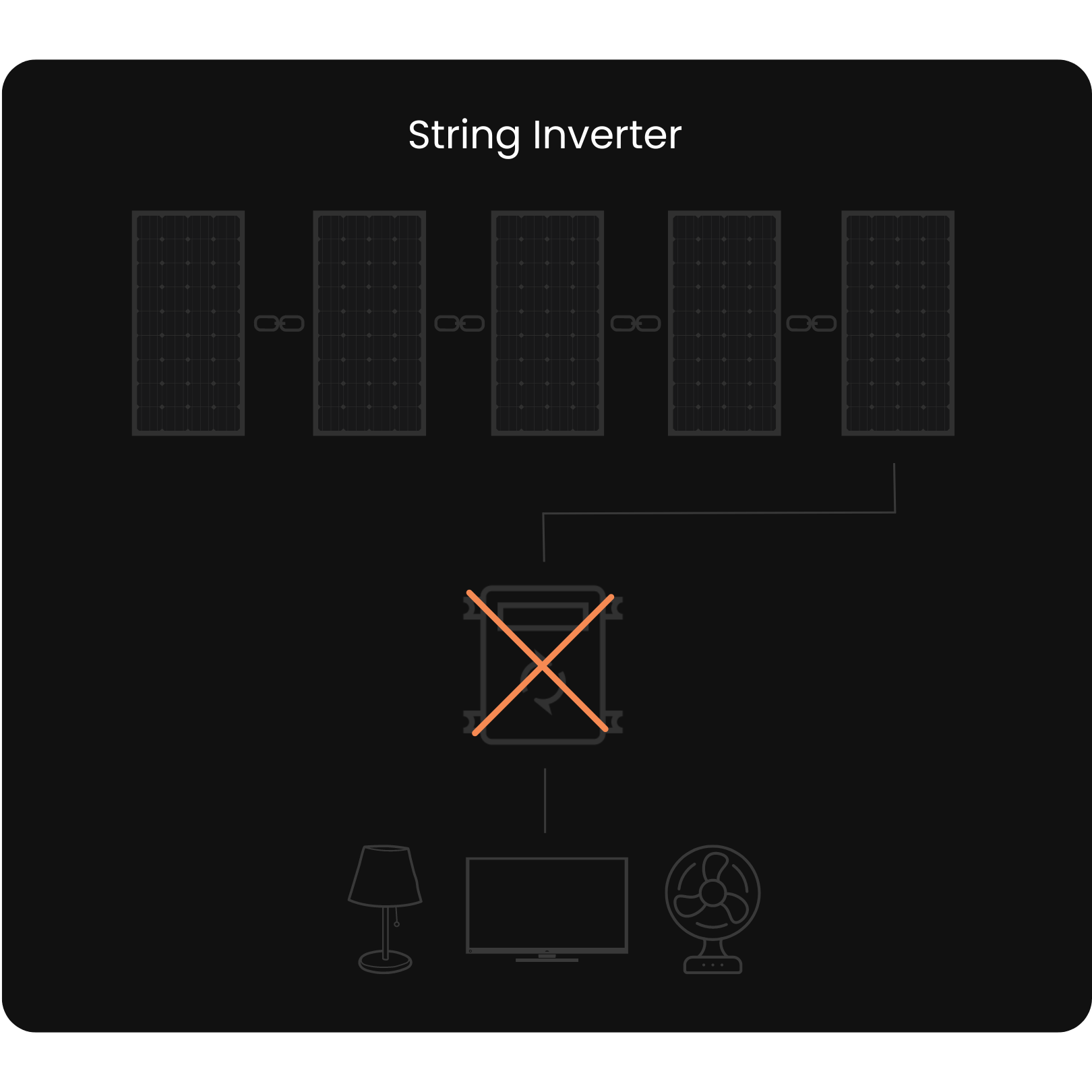
DC to AC Conversion:
Inverters convert the direct current (DC) electricity produced by solar panels into alternating current (AC) electricity, which is compatible with the grid and the electrical systems of your home.
How Do Microinverters Work?
Microinverters are units that are paired individually with each solar panel, enabling more efficient electrical conversions due to the independent operation of each panel. This differs from traditional string inverters, which are linked to multiple solar panels in series. Categorized as module-level power electronics (MLPE) because of their independent operation, microinverters are ideal for customized installations or arrays with shading concerns, offering enhanced flexibility and performance.
String Vs. Micro Inverters:
When comparing inverter types, microinverters have several advantages over traditional string inverters.
String inverters are run in series like Christmas lights and feed into a singular inverter unit. Because of this, if a panel goes bad the rest of the system is unable to produce normally. Environmental factors such as shade will also have negative impacts on overall system performance.
By comparison, microinverters are outfit on every panel to produce energy parallel to each other. Since every panel operates independently, you will have 24/7 access to live updates on individual panel performance and continue to maximize energy production.
How Does It Help?

Optimization:
Inverters optimize the efficiency of the solar system by adjusting voltage and current levels to maximize power output, ensuring optimal performance under various conditions.
Monitoring and Data Collection:
Our inverters come with monitoring capabilities, allowing users to track the performance of their solar system through their smartphone or computer. This data includes energy production and system performance, enabling users to identify issues and assess long-term performance.
Longevity:
Our inverters are designed to withstand harsh environmental conditions and are built to last, providing reliable performance over the lifetime of the solar system.
Energy Independence:
By converting sunlight into electricity, inverters enable homeowners to reduce their reliance on traditional fossil fuels, promoting energy independence and sustainability while decreasing carbon emissions.

